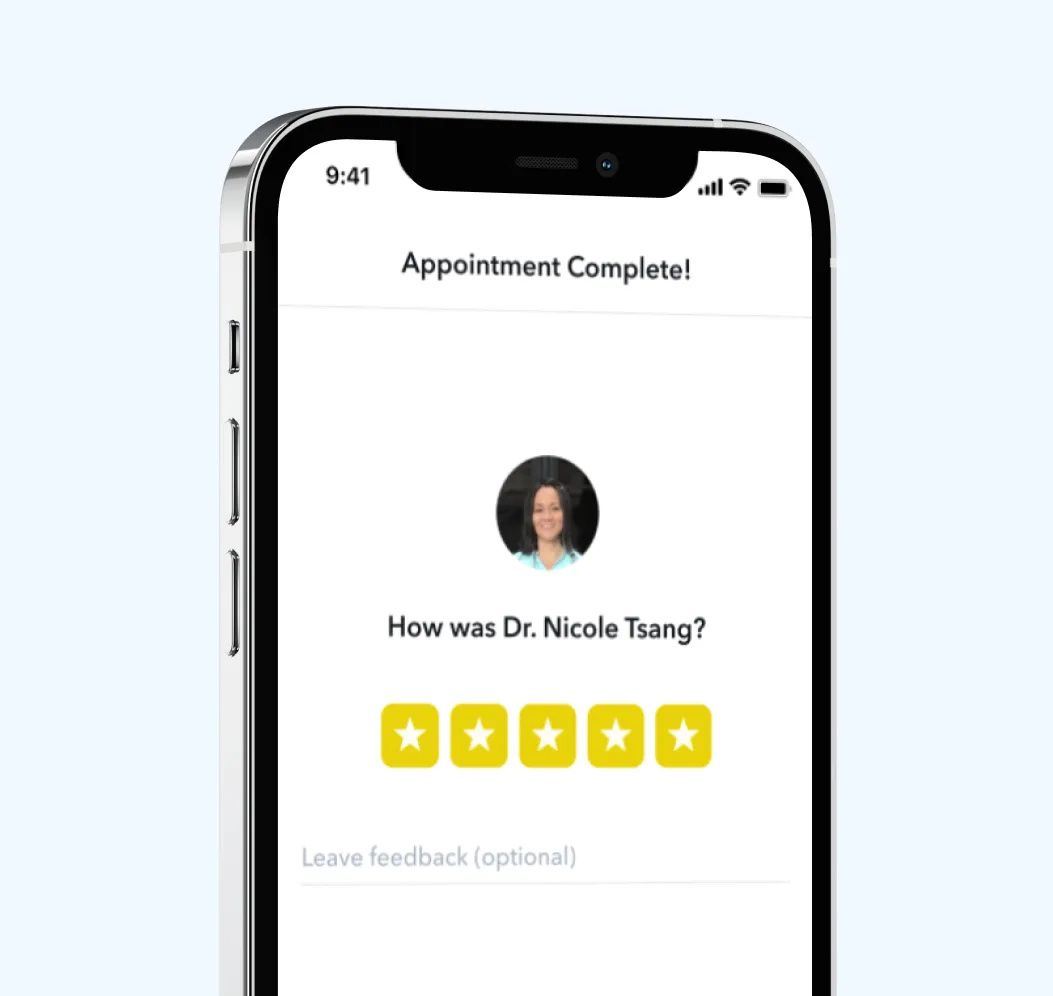All posts
What Are Beta Blockers?

Circle Medical Staff
Aug 25, 2023
10 mins

Beta blockers are a medication commonly used to treat various cardiovascular conditions. Typically, they’re most commonly used for conditions such as blood pressure, angina and heart rhythm disorders. They may also be used after a heart attack to help mitigate the changes of another heart attack. In some cases, they may also be prescribed for brain and nervous system-related conditions.
If you’re curious about beta blockers and how they help with these conditions, this guide will have your answers. We’ll be breaking down how these medications work, the benefits, potential side effects and more. Whether you’re considering asking your primary care provider about beta blockers or simply curious about how they work, read on to learn more. Or make your appointment with Circle Medical below if you’re interested in starting virtual primary care.
A Brief Introduction
There is a wide world of medications in the pharmaceutical industry, so, understandably, most people don’t have an encyclopedic knowledge of drug classes. However, if you or a loved one has a condition that may require beta blockers, it’s natural to want to understand as much as possible about how they work. With that in mind, let’s kick off this guide by diving a little deeper into how beta blockers work in the body.
Definition and Mechanism of Action
Beta blockers are a class of medications that work by blocking the effects of adrenaline hormones. By doing so, they reduce the heart rate and blood pressure, making them useful in the treatment of various conditions, such as high blood pressure, heart failure and certain types of arrhythmias.
As mentioned, the mechanism of action in beta blockers is blocking the effects of adrenaline in the body. Doing this allows the heart to beat slower and less forcefully, which helps to lower blood pressure. We’ll touch more on this when we break down how beta blockers work further along in the guide.
What Are the Types of Beta Blockers?
Several different types of beta blockers are commonly used. The specific type of beta blocker prescribed will depend on the individual’s medical condition and their response to the medication.
The most commonly prescribed types of beta blockers include:
- Cardioselective Beta Blockers — These beta blockers mainly target the beta-1 receptors found in the heart. They are primarily used to treat conditions such as high blood pressure, angina and heart failure. Examples of selective beta-1 blockers include acebutolol, betaxolol, bisoprolol, esmolol and metoprolol.
- Non-Cardioselective Beta Blockers — Unlike selective beta-1 blockers, nonselective beta blockers target both beta-1 and beta-2 receptors. While both receptors are found in the heart, beta-2 receptors are mostly found in vascular smooth muscle. Examples of nonselective beta blockers include nadolol, penbutolol, pindolol, propranolol, sotalol and timolol.
A health care professional will be able to determine what is the best beta blocker for your condition based on your medical history and the condition being treated. Now that we understand the types of beta blockers available let’s dive into how they work.
How Do Beta Blockers Work?
Beta blockers, also known as beta-adrenergic blocking agents, work by blocking the effects of epinephrine hormones. Your body has numerous adrenergic receptors, which are activated when naturally occurring adrenaline (aka epinephrine) is sent through the body. Beta blockers act as beta receptor antagonists, meaning they block some of the receptors from activating or lessen the number of receptors available for activation. This, in turn, helps to lower blood pressure and reduce cell activity.
By reducing the effects of these hormones, beta blockers help to decrease the workload on the heart, allowing it to pump more efficiently and effectively. However, it’s important to note that beta blockers do not eliminate these hormones from the body entirely. Instead, they simply reduce their effects, allowing the body to function in a calmer, more controlled manner.
What Conditions Do They Treat?
So, we understand how beta blockers work, but what are all the conditions they are typically prescribed for? Some common conditions that can be treated with beta blockers include:
- Aortic dissection
- Irregular heart rhythm (arrhythmias)
- Chest pain (angina)
- Coronary artery disease
- Heart attacks
- Heart failure
- High blood pressure (hypertension).
- Hypertrophic obstructive cardiomyopathy
- Migraines
They can be prescribed for conditions unrelated to the heart and circulatory system, such as:
- Certain types of tremors
- Glaucoma
- Hyperthyroidism
- Anxiety
What Are the Benefits of Beta Blockers?
Beta blockers have several benefits and have been prescribed for decades due to their efficacy. Some of the benefits of beta blockers include:
- Versatile uses — Beta blockers can help manage and treat a wide range of health conditions, making them a commonly prescribed drug class to help with serious cardiovascular and circulatory conditions
- Affordability — Beta blockers aren’t typically an expensive drug class and can be very affordable for patients. This is especially the case if you have insurance with a copay for prescription medications. * History of efficacy — Beta blockers are a drug class that has been around for a long time, which means it has been studied in clinical environments for decades. We have a solid understanding of the long-term and short-term effects of beta blockers, along with their efficacy in helping manage the aforementioned conditions.
Possible Side Effects
While beta blockers are generally considered safe and effective, like any medication, they do come with possible side effects. It is important to be aware of these potential risks and discuss them with your health care provider before starting treatment.
Some common side effects of beta blockers include:
- Fatigue
- Nausea
- Dizziness
- Weight gain
- Cold hands and feet
These side effects are typically short-lived, mild and temporary. However, if they persist or worsen, you should always notify your doctor. There are also some less common side effects you may experience as a result of taking beta blockers.
Uncommon side effects of beta blockers you may experience include:
- Shortness of breath
- Sexual dysfunction
- Depression
It’s also important to remember that you should never abruptly stop taking beta blockers without consulting your doctor, as this can worsen heart conditions and increase the risk of a heart attack. Always let your doctor know about any side effects or unusual symptoms you are experiencing when taking beta blockers.
Interactions & More Information
Finally, it’s important to understand potential interactions when taking beta blockers. Certain medications and substances can interfere with their effectiveness or cause adverse reactions. Always consult your health care provider before starting any new medications or supplements while taking beta blockers.
Beta blockers can also have a negative impact on several health conditions, so your doctor likely won’t prescribe beta blockers if you have:
- Asthma — Non-cardioselective beta blockers can aggravate asthma, possibly causing asthma attacks and trouble breathing. If you have a mild case of asthma, your health care provider may still feel comfortable prescribing cardioselective beta blockers, but those with moderate to severe asthma should avoid taking these medications altogether.
- Diabetes — While individuals with diabetes can be prescribed beta blockers, you will have to take extra care to monitor blood sugar levels. Beta blockers can mask the symptoms of low blood sugar, so you will need to check your levels regularly if you are on a beta blocker.
- Certain arrhythmias — Beta blockers can aggravate certain types of heart conditions, so your primary care provider will make sure to prescribe the proper medication based on the heart condition you have.
Your primary care provider will always make sure to review your medical history, current medications and other relevant details before prescribing beta blockers.
Talk to a Health Care Provider
Regardless of the type of beta blockers you’re taking, you will always need to take them under the supervision of a medical professional. If you don’t have a primary care provider or if you’re looking to make a change to a more convenient option, consider online primary care with Circle Medical.
An online primary care provider can provide the same in-person services such as appointments, treatment plans, diagnoses, prescriptions when medically appropriate and more. The difference is, you don’t have to go through the hassle of commuting to an in-person doctor’s office, sitting in a waiting room and dealing with a huge interruption in your day. Instead, you can make an appointment that works for your schedule, virtually connect with your provider right when your appointment begins and talk to your provider from the comfort of your own home. If you’re suffering from a heart condition, or dealing with any other condition covered by primary care, make the switch to online care with Circle Medical today.
Book an appointment with a Circle Medical telehealth provider today!
Circle Medical makes it as convenient as possible to start virtual care. Simply see if we service your state and then book your appointment. Circle Medical even offers same-day appointments so you can get started with care as soon as possible. Book your appointment with Circle Medical today to see how much more convenient online care can be!
Circle Medical Providers must meet all of the following standards:
-
Exceptionally qualified in their field
-
Board-certified
-
Deeply empathetic for patients
-
Follows evidence-based care guidelines
-
Embracing of diverse patient backgrounds
-
Impeccable record of previous care
400+ Primary Care Providers.
100% Confidence.
No matter which Provider you choose, you will be seen by a clinician who cares deeply about your health and wants to help you live your happiest, healthiest life.
Circle Medical Providers are held to an exceptionally high standard of compassionate, evidence-based care.
Book Appointment

